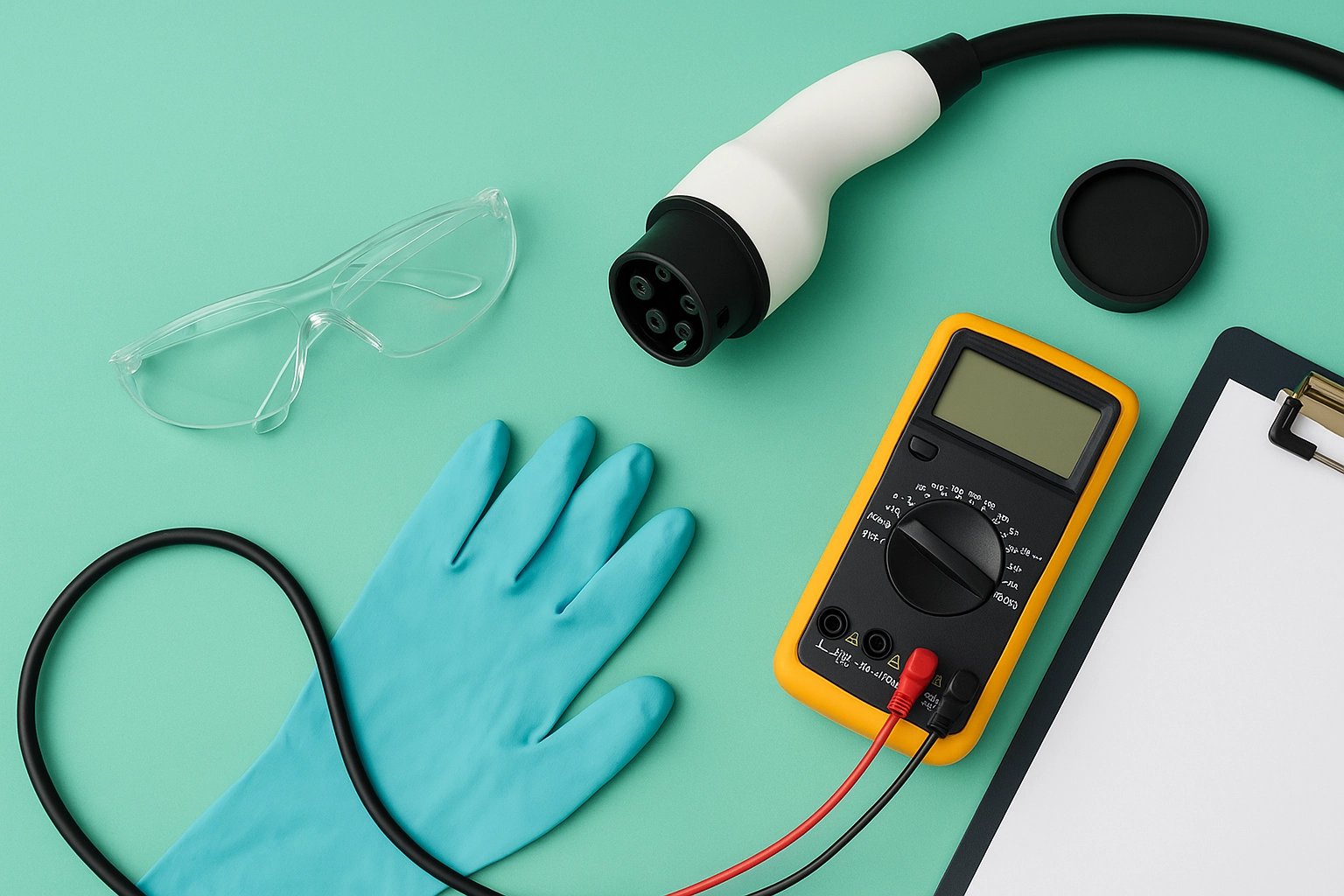IEC 62196 3 DC Fast Charging Coupler Performance Test
The IEC 62196-3 standard is a pivotal guideline for the testing and certification of DC fast charging couplers. This standard ensures that all components of the coupling mechanism operate efficiently, safely, and reliably under various conditions. Compliance with this international standard guarantees interoperability among different manufacturers' equipment, promoting seamless integration across the global electric vehicle (EV) charging infrastructure.
The test aims to verify several critical parameters including mechanical strength, electrical continuity, and environmental robustness of the coupler. The testing process involves a series of rigorous checks designed to simulate real-world operational scenarios that the coupler might encounter during its lifecycle. This includes withstanding high currents, enduring vibration from transportation, and maintaining secure connections under varying ambient temperatures.
Before initiating the test, it is essential to prepare the specimen according to the prescribed guidelines in IEC 62196-3. This involves cleaning the coupler thoroughly to remove any contaminants that could affect the testing accuracy. The preparation also includes ensuring all accessories are present and correctly assembled.
The instrumentation used for this test typically comprises a high-power power supply, an oscilloscope, and specialized measurement tools capable of measuring current, voltage, and temperature accurately. During the test, these instruments monitor various parameters continuously to ensure they meet specified limits as defined by IEC 62196-3.
The acceptance criteria for this test are stringent and are designed to protect both the equipment and personnel involved in charging operations. These criteria include maximum allowable current levels, minimum connection resistance thresholds, and maximum temperature rise limits. Failure to meet any of these standards would result in the rejection of the tested coupler.
The industry is increasingly recognizing the importance of standardized testing procedures like IEC 62196-3 due to the rapid growth in EV adoption. By ensuring compatibility between different charging systems, this standard facilitates a smoother transition towards sustainable transportation solutions. Compliance with these tests not only meets regulatory requirements but also enhances public confidence and trust in electric vehicle technology.
| Application Area | Description |
|---|---|
| Automotive Manufacturing | Ensures that charging solutions are robust and reliable, reducing the risk of equipment failure. |
| EV Charging Infrastructure Development | Promotes interoperability and standardization among different charging systems. |
| R&D and Innovation | Supports continuous improvement of EV charging technology through rigorous testing. |
Why Choose This Test
The IEC 62196-3 DC Fast Charging Coupler Performance Test is indispensable for ensuring the reliability and safety of DC fast charging systems. By adhering to this standard, manufacturers can enhance their products' marketability by demonstrating compliance with international best practices.
This test provides a comprehensive evaluation of couplers, addressing potential weaknesses that could lead to malfunctions or accidents. It helps in identifying design flaws early in the development process, thus saving costs and time associated with post-market recalls or redesigns. Moreover, successful completion of this test can expedite product certification processes, thereby accelerating market entry.
The robustness and reliability ensured by passing this test contribute significantly to enhancing consumer confidence in EV charging infrastructure. This is particularly crucial given the growing number of electric vehicles on roads worldwide. A dependable testing process like IEC 62196-3 fosters trust among consumers, encouraging greater adoption of electric mobility.
Furthermore, compliance with this standard demonstrates a commitment to quality and safety, which is essential for regulatory bodies and potential investors. It positions companies as leaders in the field, differentiating them from competitors who may not adhere to such stringent standards.
Use Cases and Application Examples
- Testing DC fast chargers before they are deployed at public charging stations.
- Evaluating new models of electric vehicles during the R&D phase to ensure compatibility with existing infrastructure.
- Performing periodic inspections on installed EV charging systems to maintain optimal performance and safety standards.





